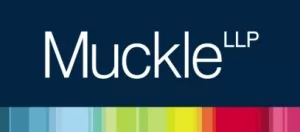Share buybacks, whereby a company buys its own shares and cancels them, can be useful for both the company and for shareholders, but there is no room for error and it is important to get it right first time, as Muckle LLP corporate partner Peter Robinson explains.
If a company is being sold and due diligence reveals an invalid buyback in the company's history, then at the very least there will be considerable embarrassment and at the worst the deal can be delayed, costs may escalate dramatically, or the transaction aborts.
So Are They For Me?
There are solid benefits in buyback arrangements for both the shareholder and from the company's point of view.
For the shareholder, it can provide a useful exit route from a company if the remaining shareholders do not wish - or cannot afford – to buy their shares from him/her. It can also be an effective way of dealing with a dispute between shareholders.
For companies, a share buyback can be a useful way of returning surplus cash to the shareholders, or of increasing the value of the remaining shares. It can also increase the dividends each remaining shareholder gets and can provide or help maintain a healthy market in the shares.
It is fundamental that a company should have the necessary funds with which to buy back its own shares. Buybacks must be funded from distributable profits, if sufficient profits are available. If such profits are not available, capital can be used, but this involves a more complicated and lengthy procedure.
Articles Of Association
The Articles of Association must give authority for the company to purchase its own shares and, if the buyback is to be financed out of capital, they must also contain an express power to purchase its own shares out of capital.
The Companies Acts then provide a seemingly uncontroversial procedure which must be followed. Whilst this looks quite anodyne, in fact the relevant sections are extremely technical and, generally, failure to adhere to all the procedures could invalidate the buyback completely.
Briefly, there must be a written contract between the company and the shareholder. A draft of this must be approved by a special resolution of the shareholders and the contract also be available for inspection by the shareholders for 15 days before such approval is given. Shares must be acquired for cash or completion and deferred consideration cannot be paid.
Failure To Comply
A failure to fully comply with the correct procedure has the following consequences:
- The buyback is illegal and void;
- The shares will remain in issue, held by the original
shareholders;
- Any money received in purported payment for the shares is
owed to the company;
- The selling shareholder is entitled to participate in
dividends paid since the buyback was "done";
and
- Business passed at general meetings following the buyback
may be invalid, as the "selling shareholder" will
neither have been notified, nor present at such
meetings.
To make matters worse, an incorrect buyback cannot be corrected retrospectively by agreement of the shareholders. Any buyback must, therefore, be redone following the correct procedure. This may be easier said than done, as the original shareholders must be persuaded to co-operate. But what if, for example, the original shareholder has died or if he simply refuses to co-operate unless he receives additional payment?
Buybacks are very easy to get wrong. A bit of thought and effort should be given if buybacks are contemplated. This really will save a great deal of time, grief and cost in the long run.
The content of this article is intended to provide a general guide to the subject matter. Specialist advice should be sought about your specific circumstances.


